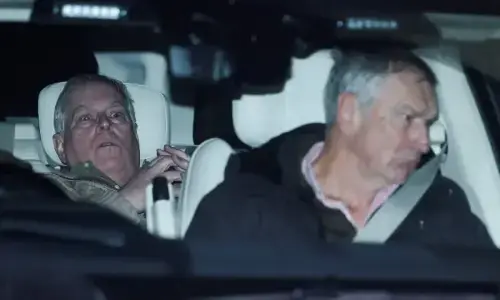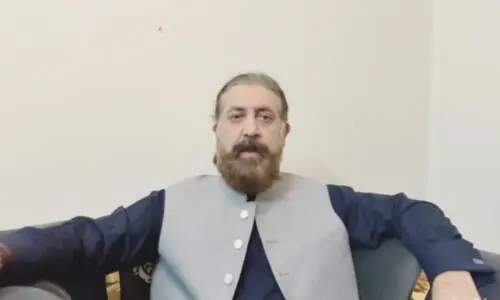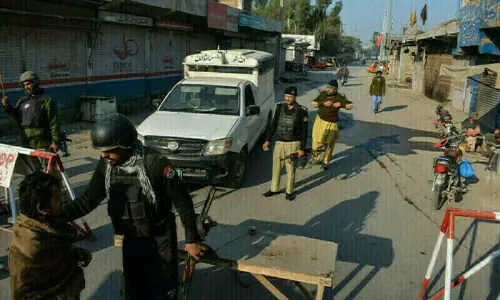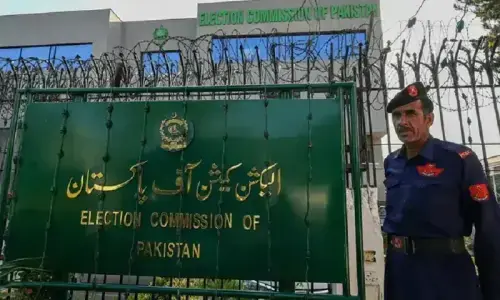IF you sit quietly for a moment, you can probably hear the sighs of relief from Europe. It’s been a long time coming but over the last few days, signs have emerged that the euro crisis may be slowly but surely coming to an end — or at least becoming less acute.
Of course the crisis is still with us, growth is slow, jobs are scarce, and people have still not found hope. But it is true that the streets of most European capitals are still lively, restaurants are full and tourism is thriving. Now, after months of anxiety Europeans can point to real signs of change. This is of course good news for Europe — and a watching world which was beginning to feel the damaging impact of the eurozone crisis.
Three key developments have put the smile back on the faces of European policymakers and politicians. First, very significantly, the German constitutional court has given a conditional go ahead to the euro bailout fund also known as the European Stability Mechanism. Second, despite fears that the eurosceptics would win the day in Dutch elections on Sept 12, voters in the Netherlands have handed a sweeping victory to pro European parties, shunning radical fringe groups. And finally, discussion of a stronger, even federal Europe is back with key policymakers beginning to talk of the day after the crisis.
Starting with the latter, European Commission President José Manuel Barroso has taken the lead in daring to talk about the need to create a federation of nation states.
In an unusually forceful speech to the European Parliament, Barroso last week pleaded for deeper political integration among the EU’s 27 members and an overhaul of the bloc’s treaties to bring this about. The call for a federalist Europe — even on a limited basis — is not something European politicians do very often these days. Mr Barroso has been especially cautious about the issue for fear of scaring European public opinion which feels disconnected from the EU and mostly opposes further political integration.
Britain also of course opposes any further political union and Mr Barroso’s ideas are going to give more fodder to eurosceptics who are pushing for a UK exit from the EU.
The Commission chief is right of course when he says that the euro crisis is the result of a lack of political cohesion in the bloc that has undermined its credibility. National European leaders were engaging in too many public quarrels, he said. EU meetings were like “boxing matches” where the focus is on knocking out rivals. The crisis, he concluded, had revealed the need for a leap forward in political integration to complement the closer cooperation member states had already begun to embrace to harmonise their economic and fiscal policies.
Unfortunately, for those fed up with the EU’s propensity for long-winded constitutional discussions, Mr Barroso said that although the work on the next EU step could begin under the current EU treaties, a new EU blueprint would be necessary to complete the process.
The EU loves legally binding rules and treaties. The problem is that these take ages to negotiate, ratify and implement. And the arcane discussions do not resonate with citizens — and often actually alienate them. And yet the talk of a new treaty just never dies down. Mr Barroso promised to submit ideas for treaty change before EU elections in 2014 so that they could form the basis of a proper European debate.
The Commission head also pressed the case for a Europe-wide banking union under which national governments will give up control of their banks in a bid to pull the region closer together to solve its crippling financial crisis. The proposal is being called the most significant surrender of national sovereignty since the creation of the euro in 1999, with the European Central Bank (ECB) being made the single supervisor for all 6,000 banks in the 17 countries that use the single currency. The Commission wants to give the ECB sweeping powers, from authority to grant and take away banking licences to an extensive mandate to investigate and fine wayward banks.
Only minutes after Mr Barroso spoke, Germany’s constitutional court in Karlsruhe ruled that the European Stability Mechanism was in line with German law and could therefore go ahead. It imposed some conditions, including that any additional German contributions to the fund would need the approval of the country’s parliament. Which brings us to the impact on Europe of the results of the Dutch elections. The results are another boost to those looking for signs of better European days.
Yes, Eurosceptics have lost the battle and the Netherlands remains firmly in the pro-Europe camp. But there is another important development: the defeat and — dare I say — the long-term marginalisation of extremists and radical groups and politicians such as Geert Wilders, the firebrand anti-Muslim political leader who used to grab the headlines — and the imagination — of Dutch and European politicians.
It is too early to cry victory and celebrate the defeat of European extremism. After all, far-right parties are still thriving in many other countries including France, and European politicians have not really acknowledged the seriousness of the extremist threat within their ranks.
But the Dutch elections do provide a ray of hope. Geert Wilders has been relegated to the sidelines, prompting hopes that as they consider the future of Europe, European politicians will also debate the dangers of populism within their midst.
The writer is Dawn’s correspondent in Brussels.































